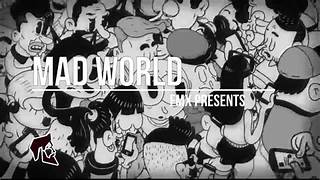For as long as I could remember, social media has always been a part of my life. I have been exposed to the internet and social media since I was a little girl. I still recall the excitement I got when I downloaded Snapchat like it was yesterday. It was around 8 years ago, when I peeked over my friends’ shoulders and saw them using these filters on their faces on Snapchat. I'm sure we all remember the dog filter or the rainbow filter, it was an iconic turning point for everyone our age. I asked my friends if I could play around with all of the filters on their phone and long story short, they bought the app for me, created my username and showed me all of the ins and outs of the new trending social media app. From that point on, Social media changed my life and it never went back to normal again.
Shortly after I downloaded Snapchat, Instagram and Twitter came right after. In a blink of an eye, I became glued to my phone. I was addicted to the trends, and always wanted to be in the loop of what was going on. Although I didn’t realize it when I was younger, looking back, social media prevented me from doing normal, daily activities that a young kid would normally enjoy doing. I stopped wanting to go outside with my little siblings to jump on the trampoline, I didn’t want to go to the mall with my mom, and I didn’t want to play catch with my dad. All I wanted to do was sit on my phone to see who liked my post, or replayed my snap, or viewed my story. At the time, I didn’t feel as though I was missing out on anything, because all of my friends were doing the exact same thing. But if I could go back in time, I think I would take the time to run errands with my parents, or give my siblings the time of day. I felt like I missed out on a part of my childhood because of my phone. As I’ve gotten older and social media has become more normalized, different pros and cons have developed from being a teenager. I learned to balance my screen time, which was a pro. But the middle school and early high school years was when the FOMO kicked in, or the loneliness.
How many of you have ever used social media to see what your friends are doing? How many of you have felt left out by something one of your friends has posted on social media?
For me, social media affected me in these ways. Every little thing one of my friends posted or commented affected me in some way. Since everything was always posted online, I had no choice but to constantly view everything that came in my direction.
Overall, I think that social media has impacted society, and myself greatly. There are some extremely positive things to technology that we, as a generation, overlook sometimes, because it’s all we’ve ever known. Being able to communicate with millions of people at once, or being able to look up any piece of information in under two seconds is fascinating. However, it's important to not look over the negative side, as too much social media can have a negative impact on people's mental or emotional health. The video “Mad World” remix that we watched in class spoke a lot to me and had a lot of different undercover meanings to it. Although the video seems exaggerated, some of the scenarios may feel completely real to others. Being so addicted to screens that we are not aware of our surroundings, or always feeling the need to post things on social media, good or bad, have an effect on the people around us. I think the truth definitely lies somewhere in that video, whether we all realize that or not. Social media can be a great thing if used properly and in a timely manner, however it’s hard for some people to manage their time when our whole lives are circulated around our phone. When you put your phone down, you feel like you're missing something, because you may be missing information or news. You may miss an important phone call, or a life-altering text message or email.
So how are we supposed to be expected to put down our phones, when our entire life revolves around it?

















